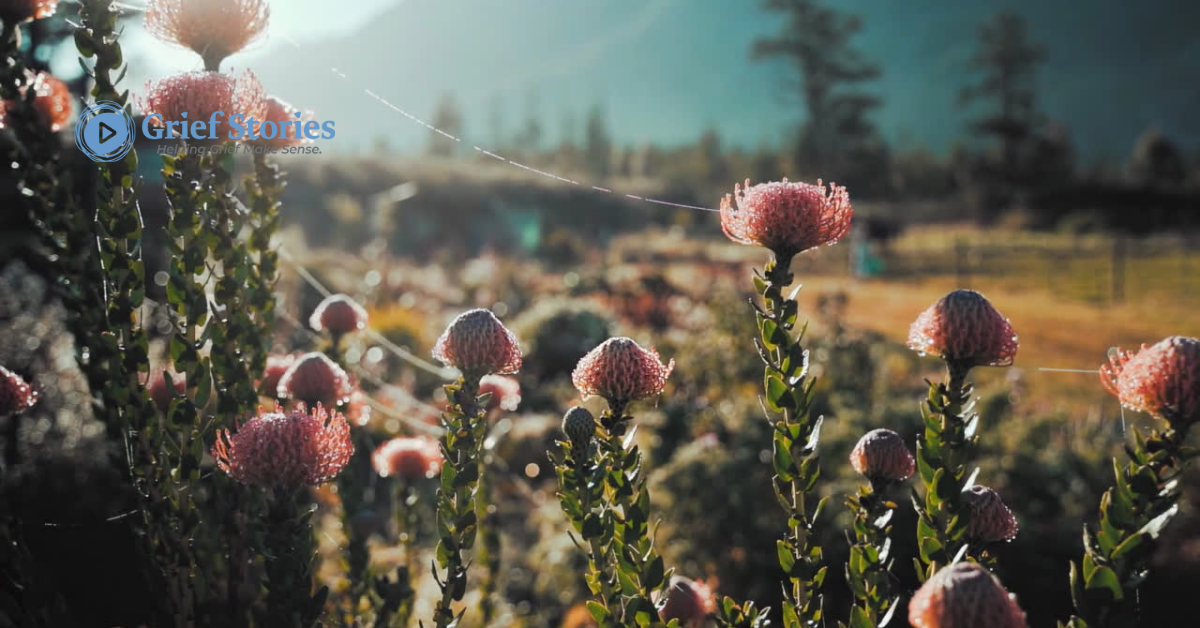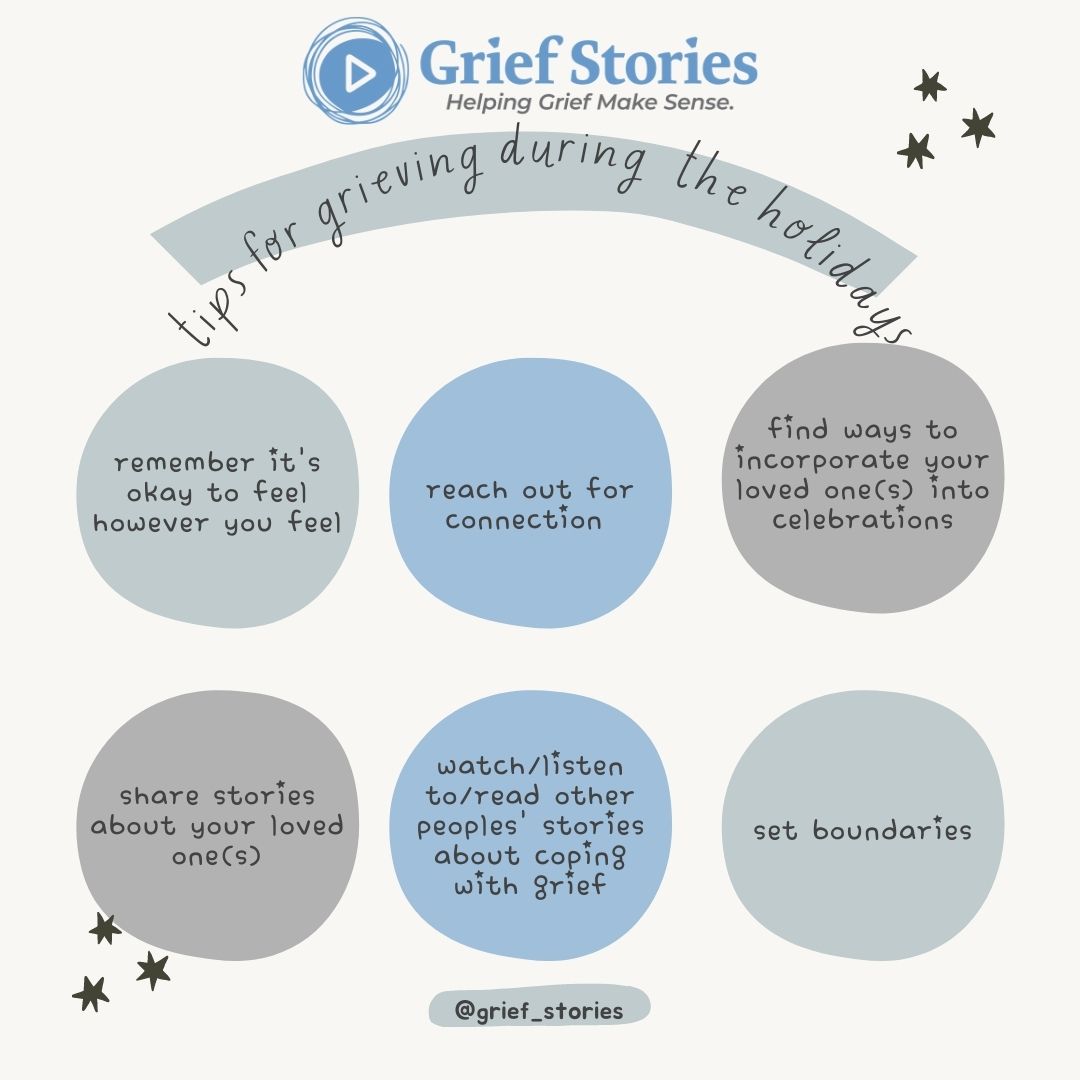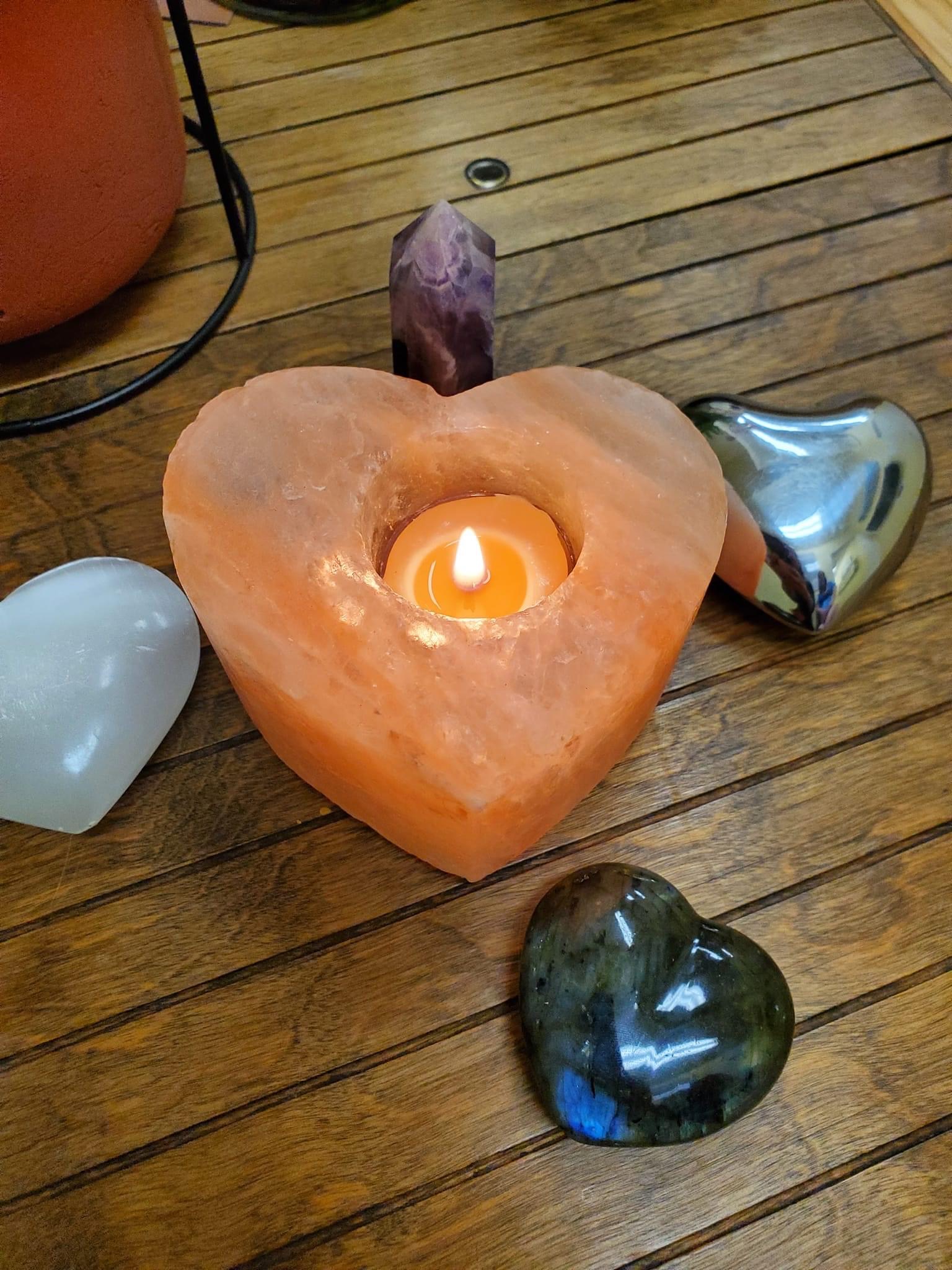Posts Tagged ‘connection’
Holding Space for The Many Faces of Grief on Father’s Day
A lot of blog posts and articles about grief and special days tend to focus on how to navigate these moments when our loved one has died. Often these articles of grief also talk about the ways we have deeply loved or cared for the person who has died.
Grief is a natural response to when we lose someone or something we have had a connection to. So what happens for the grievers who have had a not-so-loving relationship with the person who has died, or has experienced an estrangement?
I’ve heard folx sitting across from me talk about how surprising it was to experience a surge of emotions after finding out their father died after being estranged for half their life. Another person talked about how frustrating it was to hear others ask them why it didn’t seem they were grieving, and that they “should” be more tearful because their father had died, however, these people did not know how difficult their relationship with and to their father was when he was alive. Someone else shares how hard it is to carry the grief of deciding to estrange themselves from their father.
To those of you grieving and/or approaching this Father’s Day with complex feelings and memories of a not-so-loving relationship: you are not alone. We grieve because we have had a connection – and a connection can be filled with many things. Love may be part of these connections in our life, but so many other complex emotions, and situations can be part of these connections. People are complicated. Love is complicated. Grief is also complicated.
We can grieve that we did not have the relationship with the person we needed, grieve the parts of the person we miss, or even grieve for a future where perhaps we may have been able to repair the rupture in our relationship.
Grief can feel even more complicated when we have a complex relationship with the person we are grieving. It can make us feel even more isolated. Disenfranchised Grief is any type of grief where society has denied the griever’s right, role, or capacity to grieve. When a relationship has been not-so-loving we may hear well-intentioned people telling us ‘You shouldn’t feel grief because X was not a good person or not a big part of your life’. Our society also tends to prioritize grief experiences through death, and not non-death losses like an estrangement from a parent.
Whether your father has died and you had a complex relationship with them, are grieving the living relationship with your father you never were able to have, or grieving an estrangement from your Father your feelings are valid. Grief is not just one emotion, but is a natural response that can have many different emotions depending on the person. It’s okay if you feel anger, frustration, regret, guilt, and even relief. Special days where all we hear and see are advertisements talking about Father’s Day can bring up extra waves of grief as we near this date.
Here are some gentle reminders if you are moving through Father’s Day this year and have a complicated relationship with your father, or paternal figure in your life:
- Give yourself permission to write a letter to this person, expressing the things you never have been able to say. It can be a place to put down all those thoughts and feelings that you can then release. Feel free to rip this letter up into a tiny pieces, flush it down the toilet, or even safely burn the page.
- Spend time that day however you need to and with people who support you.
- Our biological family is just one connection we have, but we also create our own “chosen family” of close relationships. You may feel compelled to send a card or write a note to someone you feel creates a paternal presence in your life like a good friend, mentor, or another relative.
- Allow yourself rest as you move through the day as grief can be an exhausting experience on our minds and bodies.
Maybe you’ve lost your father or father figure to death, or you’ve lost your father figuratively because of dementia, or you’ve lost your father in your life because of his unacceptance of your lifestyle. In whatever case, you’re not alone.
However you navigate this day, know this:
- If you feel happy, that is okay
- If you feel sad, that is okay
- If you feel angry, that is okay
- If you feel a roller coaster of emotions, that is okay
- If you feel nothing, that is okay
- If you don’t WANT to feel anything today, that is okay
The reality is that no one can tell you how to feel about your situation.
Your feelings are valid. However you choose to be, honour that, honour you.
Ghosts From The Past
By Josh Abel
I met Holly riding the bus in our community. She is very attractive with a winsome smile and piercing eyes that I would trade anything for. She was also the bus driver. At that time Holly went to school to become a nurse. After becoming a nurse, Holly didn’t drive the bus that much, but one of her fellow bus drivers mentioned to me that one of Holly’s patients had died and it had a negative impact on her. It brought back ghosts from my past as I also had a job in which people died which had a negative impact on me.
I used to help people deal with their addictions. One former client relapsed and overdosed leaving a one year old child behind. I couldn’t begin to describe how sorry I felt for that one year old. Then there’s the second guessing (guilt). Could I have done more and why didn’t I see this coming? Another former client on one Mother’s day killed two of his next door neighbours. Since that time, Mother’s day has never been the same for me. I felt similar emotions for the family of the two victims. My heart went out to them and although I never met them, somehow this was one of those occasions where saying sorry just isn’t enough. The police did catch my client who wasn’t “at risk” (he came from a nice home, wasn’t involved in gangs) of committing such a crime but it still got to me anyway.
As a caring person, those incidents affected me just as Holly’s affected her. You just can’t take the human part of you out of the equation. I did tell Holly I was sorry for the loss of her patient. Holly is also a caring person and I don’t want her to experience the same negative impact as my situation did with me. They can teach you every aspect of how to perform your job except one: how to deal with second guessing. The guilt will get to you if you let it, especially if you are a perfectionist at your job. Your work ethic teaches you to be the best at your job, but there are things you are going to encounter that you just can’t control. When I started my job I wanted to help people I wanted to make an impact on people’s lives, an idealist. In my case that’s what made the guilt even more of a challenge to overcome. Although I can’t control someone else’s behaviour, Mother’s Day will never be the same for me especially since my own Mother passed away last year.
Holly if you’re reading this you are going to have a lot of success in your job and you probably won’t give it a second thought. Please give the successes more attention than the failures because that’s what makes the job enjoyable (helping people).
Holly’s true reflection is beauty and she made the bus fun to ride.
Alongside
By Mike Bonikowsky
Grief is the great leveller, and the great divider. Everyone grieves, sooner or later, but no two people will experience it in the same way. No two bereavements are the same, and neither are any two consolations.
This is only more poignantly the case for people with developmental disabilities. Not only is their grief completely unique, but they are often unable to express it in traditional ways. How are we to support someone through the grieving process when they cannot, or will not, tell us what they are thinking and feeling about their loss? The answer is simple, and difficult.
In Christian theology, there is a concept called “the Holy Spirit”. This is the invisible piece of God that is everywhere all the time, with and within all people. The name given to this in the original ancient Greek is the “Paraclete”, literally, “The one who comes alongside.”
That is also our best, and only role, when supporting a person with a developmental disability to grieve. We must be the one that comes alongside. There is no closer place we can get to. We must be present, be with, perhaps not understanding or comprehending what the person we support is experiencing, but alongside them nonetheless. We must be there, ready to provide whatever we can discover of their unique need in grief.
But that coming alongside must begin before the bereavement. We must already have been there through the happier seasons of the person’s life, if we are to know them well enough to read the language of their grieving, and hope to know in what little ways we may support them. Supporting a person with a developmental disability to grieve is not a matter of coming alongside, but of remaining where we already were. It is a matter of knowing and being known by them, of being trusted. It is not so much a matter of doing anything for the person, but of being something for them: A safe place, a consistent and reliable presence. It is to be a fixed point in a confusing, chaotic world, someone of whom they can say: “When that person is here, I can expect things to be like this.” Only when this relationship is present and well-established in the ordinary times can we come alongside in the darkest, loneliest season on the person’s life, and hope to meet their unspoken needs.
And usually the answer to those needs is what it has always been: To simply be there with them, to prepare a meal for them and do the dishes afterward, to help them wash body and find clean clothes to wear. To open the curtains in the morning, so that when they emerge from the dark cave of their unique grief, for however short a time, they are greeted by a world that has not ended, and a face that they know, and that knows them.
Tips for Grieving During the Holidays
By Alyssa Warmland
The holidays can bring up a lot of feelings, especially when you’re grieving the loss of a loved one. Whether it’s the first holiday season without someone, the holidays mark a time where someone you love died, or it’s just hard to be around celebration when you’re not feeling celebratory, December can feel heavy.
These are a few tips for grieving during the holidays:
Remind yourself that it’s okay to feel however you feel.
Feeling sad or mad? Feeling happy- and guilty for not feeling worse? Whatever comes up for you is normal. It’s okay to sit with your feelings, to give them some space when it feels right, and also to compartmentalize them if you feel like that’s best in the moment. You can acknowledge your feelings, put them in your pocket, and hold on to them during the family dinner if you want to. You can take them out of your pocket and spend time with them later. Grief is unique, and can show up in unexpected ways. It’s okay to feel however you feel.
Reach out for connection.
Sometimes we worry that we’ll make someone else upset if we mention our grief, or if we show up in a way that isn’t particularly festive. The truth is, the people who care about us want to hold space for us, even when we’re grieving. Connection can help us feel better.
Find ways to incorporate your loved one(s) into celebrations.
Did your dad have a favourite side dish your family always served at dinner? Did Oma make sugar cookies every year? Did your sister always compliment you when you wore red? Consider serving dad’s dish, or baking Oma’s cookies, or wearing red.
Share stories about your loved ones.
Sometimes it can be tempting to pretend the people we love haven’t died. As if, by not talking about them, we can pretend they’re still around. In fact, sharing stories about them can help honour them and to feel their presence. Remembering our loved ones out loud in connection with other people can feel healing.
Watch/listen/read other peoples’ stories and insights about grief.
At griefstories.org , we host stories and insights from people with lived experience in grief, as well as healthcare professionals’ insights on grief. These videos, podcasts, and blog posts are available for free 24/7, anywhere you can access the internet. Our hope is that this content may help you feel less alone.
Set boundaries.
Listen to how your body feels. You don’t have to do anything you don’t want to do. You are safe and you are worthy of operating with integrity toward yourself. Grief can be hard, and it’s okay to be gentle with yourself as you move in and through it – even during the holidays. Set whatever boundaries feel right for you. There are no rules here. You’ve got this.
What I know about grief
Post by Alyssa Warmland, artist, activist, well-practiced griever.
I earned my “grief card” at 15, when I lost my mother. Since then, I’ve experienced other instances of loss and have become a well-practiced griever. Most recently, I lost a friend in a tragic way. She was deeply connected within our rural Ontario community and as I grieve her loss, I’m watching many other people around me grieve. Some, like me, are experienced in grief. Others are newer to the experience.
The following are some things I know to be true about grief for me, based on my lived experience. Some of them may resonate with you as well. Grief is unique to the people experiencing it in each moment, so please take whatever makes sense to you from this share and leave whatever doesn’t.
– Give yourself space to just feel the waves. Sometimes it feels like it’s not quite so intense, and then sometimes it feels like you’ve just been punched in the stomach. And it’ll cycle around. And it won’t feel this way forever.
– You’re totally allowed to feel whatever it is you’re feeling. Last night, while I spoke with sobbing friends on the phone, I was absolutely furious. Today, it’s that gut-punch feeling. it’ll cycle around. And it won’t be this way forever.
– Sharing stories can be helpful. Celebrate the reasons you loved whoever you’re grieving. Look at the pictures. Watch the videos. Sing the songs.
– Be patient with yourself, but keep going through the motions of what you know you need to do to maintain your wellness while you grieve. Eat something, even if you’re not hungry. Sleep or lay down, even if you feel like you’ll never fall asleep (podcasts can help make it less overwhelming). Drink water. Go for a walk outside. Write about it. Work, if you want to work (and plan for some extensions on stuff if you can, so you can work a bit more slowly than usual if you need to)
– Your brain may take a little longer to process things. Your memory may not work as well. You may feel irritable or overwhelmed. It’s okay.
– If the death part itself was hard, try to avoid focusing on the end, and instead think about the person you loved and who they were when they were well.
– Connect with other people who are grieving, it may be easier to know you’re not alone.
To learn more about collective grief, please read Maureen’s post on the topic.
Collective Grief
Post by Maureen Pollard, MSW, RSW
When the death of a person affects many members in a community, city, country, or across the world, people will experience collective grief.
Some things that can help people through the experience of collective grief across a community include:
– Holding gatherings that allow people share the pain of loss and to remember and honour the person who died;
– Sharing reflective and supportive posts on social media that address the loss and grief being felt by so many;
– It can be helpful to tag the person who died, so it shows up on their page where people can look through for solace. It may be a good idea to avoid tagging the family members of the person who died so that they can
choose when to opt into engaging with these memories without overwhelming notifications;
– Encouraging opportunities for community members to give and receive empathy and compassion;
– Respecting personal differences in the experience and expression of grief among community members, as everyone
grieves in their own way.
While many people across a community may be feeling the loss, it’s important to respect the privacy of those most impacted by the death. Give the immediate family time and privacy. Although many may mourn their loved one, it can be burdensome for the family to have to receive community grief at a time when they are coping with their own grief process.
Jane – Connection, place, and grief
Jane – Connection, place, and grief
Jane talks about the difference between living alone in Toronto while grieving during the pandemic compared to her experience once she moved closer to her family in Northumberland.
Donna B – “Tools for a year of firsts”
Donna B – “Tools for a year of firsts”
Donna discusses how to look after yourself. Donna continues to grieve the death her son during service in Afghanistan.






